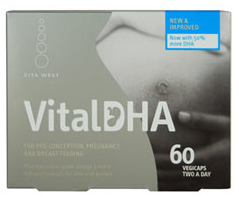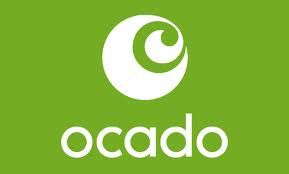The birth of a new career
Swapping from a City job in investment banking to training as a breastfeeding counsellor wasn’t an obvious career change for Louisa van den Bergh, but it has proved highly fulfilling. ‘I knew immediately it was what I wanted to do.’ The impetus came after the births of her two sons, Arthur, now seven, and Toby, five. ‘As one of the first of my friends to have children, I was often asked for advice – sometimes I didn’t have the answers and that inspired me to go back to university.’
Both births had been traumatic – Louisa had a ‘near-death experience’ when she gave birth to Arthur – so she was determined to equip pregnant women with comprehensive advice and set up Lulubaby, an antenatal hub, running courses in West and Southwest London (www.lulubaby.co.uk).
The course of six sessions, by conventional and complementary practitioners, covers all aspects of childbirth and prepares first-time mothers (and fathers) for life with a new baby. (Louisa points out that ‘you are legally entitled to time off work for antenatal classes.’) Louisa is often asked what women can do during pregnancy to help with the birth and beyond.
• Eat a varied diet, preferably low GI (glycaemic index), so your blood sugar levels don’t rocket up and down, which may affect your baby’s metabolic health.
• Aim to eat one to two portions of oily fish weekly. Omega essential fatty acids in salmon, mackerel, etc, are vital for brain and eye development, and reduce the risk of postnatal depression. Or take a supplement (such as VitalDH A by Zita West Products, £14.51 for 60 capsules, from www.victoriahealth.com).
• Include different flavours: what you eat can influence your baby’s appetite and preferences.
• Keep active. Gentle exercise, such as walking and yoga, can have a positive effect on the baby’s heart rate, while mums in good shape tend to cope better with labour.
• Avoid stress. Chronic stress can lead to low birth weight babies and may affect their health in later life.
• Do pelvic-floor exercises three times a day to reduce the chance of incontinence after the birth. Massaging the perineum (the tissue between vagina and anus) after 34 weeks reduces the risk of tearing (Google NHS perineal massage). Some women choose the Epi-No, a balloon device that helps stretch the muscles and perineum, from 37 weeks (epi-no.co.uk).
• Sitting straight with your knees below your pelvis helps get your baby in the best position for labour.
• Find an antenatal course near you. Having a group of local, friendly mums with babies of a similar age is so valuable. Check out who is giving the course – some are taught by people who have never delivered a baby – and if there are sessions for partners.
BOOST YOUR IMMUNE SYSTEM
 A reader whose 23-year-old daughter has glandular fever asks if there are any supplements to help her ‘awful fatigue levels and low mental state’. Pharmacist Shabir Daya, who had this viral illness some years ago, advises vitamin D3 to help support her immune system. He also recommends Spiru-Tein, a food supplement that combines three types of protein with vitamins, minerals and digestive enzymes. (This helped a friend with viral pneumonia.) D Lux 3000 Spray by Better You, £7.95 for 15ml, and Spiru-Tein by Nature’s Plus, £22.15 for 544g, from www.victoriahealth.com.
A reader whose 23-year-old daughter has glandular fever asks if there are any supplements to help her ‘awful fatigue levels and low mental state’. Pharmacist Shabir Daya, who had this viral illness some years ago, advises vitamin D3 to help support her immune system. He also recommends Spiru-Tein, a food supplement that combines three types of protein with vitamins, minerals and digestive enzymes. (This helped a friend with viral pneumonia.) D Lux 3000 Spray by Better You, £7.95 for 15ml, and Spiru-Tein by Nature’s Plus, £22.15 for 544g, from www.victoriahealth.com.
THE DREAM DIET?
Eat well, lose weight, feel fab and get glowing skin. That’s the promise of the Perricone 3-Day Diet, devised by US dermatologist Dr Nicholas Perricone (www.perriconemd.co.uk/3-day-diet-2). Two colleagues tried the anti-inflammatory regime – which majors on wild salmon and veg, with berries, nuts, natural yoghurt and oatmeal, plus lots of spring water (no coffee or alcohol) – and were impressed. One lost 10 lb (almost five kilos), and the other said she almost couldn’t eat everything on the daily quota. They both look radiant and are bouncing like Duracell bunnies. You can find everything for the simple meal plan online at www.ocado.com/perriconemd.


